Graham Reid | | 14 min read
Marvin/Mondia/Taylor: Swingtime in Springtime
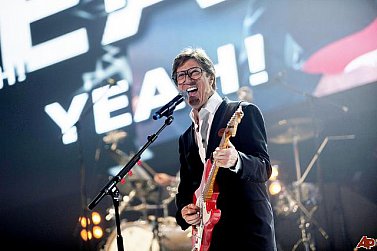
The first British guitar hero – Hank Marvin of the Shadows – is in the studio again in his adopted home of Perth, West Australia. When we call for a chat in advance of a New Zealand tour (dates below) he's contributing to an album by his old Shadows bandmate Brian Bennett, a tribute to the composer John Barry.
Others also involved are Peter Frampton and Mark Knopfler he says, and that is the kind of company Marvin, now 74 keeps. His signature melodic and precise sound has been openly admired by Eric Clapton, Jeff Beck, Richie Blackmore and many others, although he laughs that today this recording is taking some time because he hasn't been playing much recently. Not electric anyway, as we shall learn.
The Shadows were one of the most popular and influential groups of the early Sixties -- and instrumental groups were very popular at the time: all the surf-rock bands, the Ventures with the hit Telstar, the Tornados . . .
The sole Harrison-Lennon writing credit in the Beatles catalogue is the instrumental Cry for a Shadow recorded in Hamburg in 61 when the Shadows' influence was at its peak. Marvin counts many musicians among his admirers.
And the personable Hank Marvin is happy to talk about his time in London as a teenager before the Shadows formed – playing at the famous 2i's coffee bar where so many British talents were discovered – and how the legacy of the Shadows has been cast rather darkly over his subsequent solo career.
So what is tune you are recording Hank?
It's [the theme to the 1969 film] The Appointment. It's a nice tune lends itself to my melodic style, you can't get too clever with it so you keep close to the melody.
 Not the kind of music you are currently
playing because you are now doing Django Reinhardt tunes with your
small band. All acoustic.
Not the kind of music you are currently
playing because you are now doing Django Reinhardt tunes with your
small band. All acoustic.
Yes, but I was just reading With and Without Django by Paul Balmer who did a documentary on [Reinhardt's violin-playing collaborator in the Thirties] Stephan Grappelli. In it he mentions saxophonist Ben Webster whose jazz got to such a high state he could play the tune in such a way it was as if he'd put it in his arms and rocked it. And that was something that many players were envious of, that ability to play and actual tune. Because most of them pick up a tune and immediately want to impress you with their version which is often nowhere near as good as the original.
And I thought that was something I've always tried to do anyway, even with this gypsy jazz we are doing, when we play a melody. I like to play the melody without killing it with over-ornamentation or my own idea of it.
It's different when you get into the improvisation after you've established the melody, but all of us have a lot of respect for good tunes and there is no way you can improve on them.
Although I was into jazz when I was 13 and 14 and eventually got into rock'n'roll, I've got very broad tastes. But I've always loved a tune you can hold onto. A number of people I've spoken to after the gypsy jazz gigs say, 'It was great that you actually played the tune' and they love it.
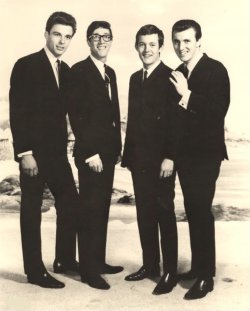 Before we talk more about that, I'd
like to ask about something way back. What was the 2i's like in
London when you were there as a teenager away from home and
playing?
Before we talk more about that, I'd
like to ask about something way back. What was the 2i's like in
London when you were there as a teenager away from home and
playing?
It was 1958 and it was incredibly exciting. Bruce Welch and I were 16 and we played there several nights a week, and when we didn't play one of us would handle the newly installed orange drink machine. What is was, was a small coffee bar upstairs and a cellar downstairs which was not that big. But on Fridays and Saturdays it was absolutely jam packed.
It was the venue which was responsible for the hand jive developing because people couldn't move to dance, so moved their hands.
There was a little stage which ran the width of the room and was just deep enough to take a drum kit which was on one end of the stage and the rest of us would line up along the stage.
It was fantastic fun. There was no alcohol at the time because that drinking culture didn't exist then. People were more into coffee and a cold drink.
Coca Cola was exotic then.
Exactly. So it was hugely exciting but we had to know a lot of numbers so we had to listen to a lot of records and improve the repertoire, so you'd do a whole range of records. Or someone else would teach you the chords of something. You'd do that in the afternoon so you gradually increased your repertoire of rock and pop songs, and whole range of stuff.
It was a good training ground to have to learn a lot of new numbers quickly and to be constantly in front of an audience. So you got used to being in front of people who were within two feet of you. And you'd hear other people and learn from them too.
There was an older guitarist down there called Charles who was technically much better than me – I didn't like what he played, he was a bit square – but I was intrigued by his technical skills so I listened to him and watched.
That was your Hamburg experience?
I suppose so, although not quite as wild as Hamburg from what I've ben told. Someone came up to me one day, I think it was [jazz clarinetist] Terry Lightfoot who said they had a jazz club gig in Soho and they played for a half hour spot between the jazz band sessions. He invited us to play.
It was a trad jazz club and I thought, 'How are we going to take what we do there?' which was rock'n'roll?'
So we thought about Swinging Shepherd Blues and quickly learned that, and hoped that they'd think it was jazz. So we are at this club and there's no soundcheck and as the other band finishes we got up, the drum kit goes up and all these bohemian people, girls with sweater down to their knees and guys with long beards, were looking at us in horror because we had electric guitars. But oddly enough they were quite appreciative.
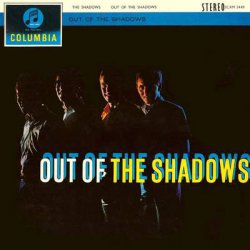 I think about those crucible moments
when the music and sometimes the audience changes.
I think about those crucible moments
when the music and sometimes the audience changes.
I've learned from experience about what happens when you do something that people don't expect. It's like when I started touring my own band, initially there was a resistance from the Shadows fans who wanted to see the Shadows. But then things came around and people loved it.
Initially there was this thing about, 'Why are you doing it on your own' so I know there is resistance out there to this [gypsy jazz] thing because I'm doing something people don't expect. They may want me to do [Shadows' hits from the Sixties] Apache and Flinglebunt etc so a lot of people will say, 'I'm not going to see that'.
I understand that and accept it exists .
But we hope we get some jazz fans along who admire the Grappelli and Django legacy . . . and some Shadows fans who are more broad-minded and tolerant.
But we'll see what happens. People can get stuck in a time warp, but there are enough who have accepted certain amounts of change.
Let's talk gypsy jazz. It seems to me you have come full circle because in Pete Frame's book The Restless Generation you spoke about going to London and the 2Is coffee bar, but you'd been more into jazz and blues and had been trying to emulate people like Django and Barney Kessel.
That's true. Once you get into the rock'n'roll scene as I did – which I really enjoyed and it was an exciting form of music and it still is – but that was a new form of music.
There was the black approach like Fats Domino, Little Richard and Chuck Berry – Chuck was unusual in his writing and approach – and there were those white artists who had that country-rock background like Carl Perkins, the Crickets, Gene Vincent and Elvis of course.
So there were great guitar sounds and a fair amount in the early days was based on 12-bar blues and not a million miles away from folk-blues. So I could relate it to as an extension of that somehow.
And then the life we had pretty constant touring, television, recording . . . and there was very little time to think about trying to play anything like jazz.
I didn't have the technique anyway, so much later in life I started to go back to it in terms of trying to create something in that genre.
I imagine for intelligent guitarists at some point you are going to end up doing Django and trying your hand in that music?
It was surprising how many people from the rock will mention Django. I was surprised to read for example BB King said Django was a big influence on him, and it was the vibrato apart from his overall playing. Jeff Beck is a big Django fan, so is Tommy Iommi from Black Sabbath. It is surprising how many recognise how innovative he was.
For me you think of some of the techniques he used, like the use of octaves which in modern times people like Wes Montgomery and George Benson have used also. But he used it very powerfully.
His finger vibrato was outrageous and I don't think anyone was doing it in those days. Classical players get the little finger in line with the string which you can do very easily on a gut-strung guitar or nylon, but it's much harder to get a response on a steel strung guitar, so he did the sideways vibrato which of course now is what rock and blues players do. Joe Pass, Barney Kessel, Les Paul and all those people recognise his legacy.
So I am in awe of the man having read a lot about him and thinking what he was able to do with just those two working fingers.
Exactly that would have precluded him in another world.
Yes. It was an amazing technique he developed, and the speed! A lot of us have trouble playing some of his stuff – if we can play it at all – with four fingers.
His right hand plectrum technique, which all the gypsies have, is astoundingly solid. I spent some time with the gypsies in Europe at Samoir, the jazz festival in France, and I've watched them. They have an unusual right hand technique which is accurate and fast and very powerful because it's designed more for acoustic. So I use a slightly different technique because I'm an electric guitar player. So its like a hybrid version.
We've been talking about one of the great geniuses of guitar and someone enormously influential but I'm going to ask about you . . . because you were the first British guitar hero and everybody genuflects to you. Does that sit comfortably with you? Your position in the guitar player cosmos as it were?
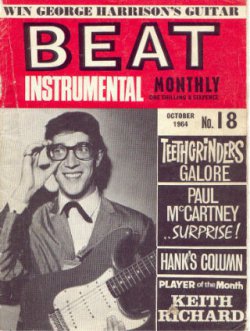 To a certain degree. It still amazes me
and humbles me but over the years I have spoken to a number of
guitarists, British, European and some Americans who have said,
'You're the guy who got me going on guitar and were a great
influence'.
To a certain degree. It still amazes me
and humbles me but over the years I have spoken to a number of
guitarists, British, European and some Americans who have said,
'You're the guy who got me going on guitar and were a great
influence'.
People like Jeff Beck. Funnily enough the last time I saw Jeff was here in Perth – I love his playing, he is so different and that technique he developed using the Strat with his fingers and the whammy bar, which he didn't do years ago when he was on a Les Paul – but he said to me, 'Hank, you are 80 percent of the reason I am playing guitar'.
He said he'd heard me and they formed a Shadows band. He said the singer looked a bit like Cliff [Richard]. Terrible singer but he looked great so they had to have him in the band.
People like Brian May and Pete Townshend have also said flattering things but I don't let it go to my head. I've got my own views on my playing. I know I developed a style and a particular sound and tried to go even further on my own albums with the Strat and then introducing acoustic, so I was still trying to move forward.
So it is flattering, but I still get people who say, 'He's crap'. Which is fine. You get some guys who say, 'Ah, he just plays the tunes', that sort of thing. I guess the people who want to hear flashy heavy metal-type runs or blues stuff . . . well, if it's what's appropriate to what you are doing.
I remember John Peel, who was very into indie music, in the early Seventies got us to do a live session for his radio show and he said. 'I gotta tell you this, I was a huge fan in the early Sixties but when the late Sixties came along it became very uncool to say you were a Shadows fan'.
He said he was ashamed to say he wouldn't own up to it. But he said , 'I tell you something, it's now becoming cool again, it's doing a full circle'. And it did became cool again, especially in the UK.
It was interesting to hear someone voice how fickle people can be. But I'm glad to say when you have big names in the guitar world owning up to it people can say, 'Ah well, I can own up now as well because Brian May and Pete Townshend have'
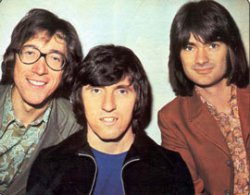 But when you did reinvent yourself in
the Seventies with Marvin Welch and Farrar [with Bruce Welch from the
Shadows and singer/guitarist John Farrar] which was fantastic band .
. . the hurtful part must have been that the Shadows hung over you.
But when you did reinvent yourself in
the Seventies with Marvin Welch and Farrar [with Bruce Welch from the
Shadows and singer/guitarist John Farrar] which was fantastic band .
. . the hurtful part must have been that the Shadows hung over you.
Exactly. That is something I've come to accept. Funnily enough when we started doing live shows as Marvin Welch and Farrar we were getting very good critical reviews. But then people would say, 'Play Apache. Play FBI' so what we had to do was incorporate some big Shadows tunes into the show to sweeten the pill of us doing MW&F stuff.
A few years later when Farrar went off to the US we put the Shadows back together to do a Eurovision song contest and thought we better do some live shows in UK and France. For those shows we thought we should put some vocals of MW&F songs into the set and it was bizarre. In that context of the Shadows doing them they went over big with the audience. It's funny how the way you package things can have an effect on people's response to it.
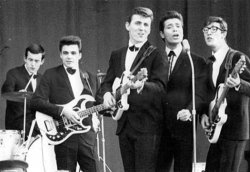 But you sang in the early days anyway.
But you sang in the early days anyway.
Yeah we always did. We were actually a singing group before we became an instrumental group. The instrumental thing was a little bit accidental in that we had done an instrumental single which were two numbers we'd done on Cliff's first album which was a live album.
Norrie Paramor liked them and wanted to put them out as a single but we didn't think of ourselves as an instrumental band at that time, but it started to happen. There was Russ Conway in Britain who was having hit piano albums then Johnny and the Hurricanes came on the scene then Duane Eddy. So there was an interest in instrumental music.
We met Jerry Lordan supporting us on a tour in early 1960 he asked if we were doing any more recordings, and of course after the tour we had to get in the studio. But we hadn't written anything. He had a tune he thought we might like and it was an instrumental and he played this ukulele tune to Jet Harris and me and we thought it was fantastic. So we got Bruce and Tony Meehan to have a listen and they loved it so we arranged and recorded it. That was Apache.
It's funny though, that little introduction is often sampled but was not actually part of the tune, that was just my introduction. I always used to get the job of coming up with an introductory phrase, like on Atlantis or whatever.
Do you play regularly aside from doing the Django project?
When Cliff was here in Perth recently we had dinner together and he did a show at a big winery in the Swan Valley and I got up and did a few numbers. Usually with Cliff I get up and I've done it a few times with Tommy Emmanuel. I just saw something on YouTube the other night taken a few years ago of Tommy, Phil [Emmanuel] and myself playing, and then Tommy and I did Windy And Warm together as an encore and it was a lot better than I remembered. There was a really good atmosphere between us. It was all improvised in that there was no rehearsal. There was a sense of freedom and flexibility.
Even now you sound like your own best and worst critic.
Yes, I'm a fan of so many other musicians and someone like Tommy is a real monster of a player and I always feel if I'm playing with him I'm not competing – he plays finger style and I don't do that, or not very well – but it's the overall result. You want to play well enough but within your own style that you compliment each other.
You always think, 'Was that phrase really nice?' I think it's good to be a good critic of what you do and it makes you want to do better. Sometimes if you see it on video think, 'Oh don't do that again, it was a terrible phrase' or it might be the timing of it didn't fit.
When you are doing things on the spur of the moment anything can happen and you can play something that isn't quite right. But the more you do it the better you become. And that's what I've found with the gypsy jazz, the more you do it the more you revise it and feel you are coping with it better.
If somebody said, 'Are you a jazz player?' how would you answer?
Not really. I dabble in our interpretation of gypsy jazz which is great fun and have good arrangements, but I think I play the swing with a fairly decent feel. But to get into more modern jazz I wouldn't really know where to go. I've played a little of the jazz-fusion approach on some of my solo albums just to take it into a slightly more adventurous area. Fans love that because I wasn't losing what they wanted to hear but was adding something, and they enjoyed that. But no, I wouldn't describe myself that way and I know quite a few jazz guitarists here in Perth and their knowledge of jazz harmony would put me to shame.
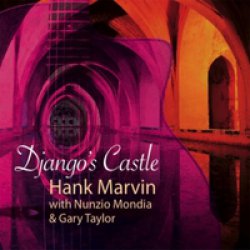 The Django's Castle album you've recorded
is fantastic because there is a great feel to it, but I'm going to
ask what people expect at a show? Is it almost exclusively gypsy jazz
or . . .
The Django's Castle album you've recorded
is fantastic because there is a great feel to it, but I'm going to
ask what people expect at a show? Is it almost exclusively gypsy jazz
or . . .
That is what it is. I see it as an evening with [gypsy jazz and Django]. I talk a lot to the audience but we play that music and it gets a great response. Obviously some people in the audience are Shadows fans but they think it's fantastic because they'd never heard it before.
But it is difficult because at the moment this is what I am doing musically. I'm not going out there to do half of the show as Shadows material, that was never the idea. I'd have to put together a proper band with drums and a crew -- unless you do it without drums but it's never the same.
This is a very minimalistic thing and it gets very expensive with a band. This was never that intention. Part of our little repertoire is we do a version of Nivram which was on the first Shadows album and it goes really well and we enjoy doing it because it fits well.
We've been very firm with the promotor that this is a gypsy jazz evening and we don't want people fooled.
HANK MARVIN'S GYPSY JAZZ TOUR DATES
17 Oct Auckland (Bruce Mason Centre)
18 Oct Hamilton (Clarence St)
19 Oct Tauranga (Baycourt Theatre)
20 Oct Napier/Hastings (Hastings Opera House)
22 Oct Wellington (Opera House)
24 Oct Blenheim (Civic Theatre)
25 Oct Christchurch (Aurora)
27 Oct Invercargill (Civic Theatre)
28 Oct Dunedin (Glenroy Centre)

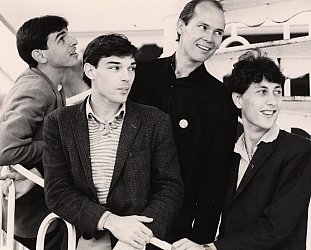
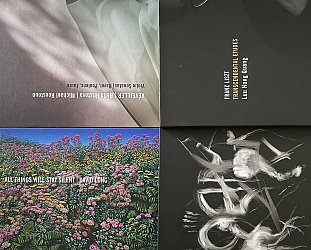

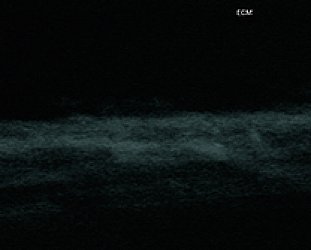
Graham Dunster - Jul 30, 2013
Great interview, clean, clear and honest. May have to go and see him now!
Savestewart archer pg - Jun 8, 2014
Great
Savepost a comment